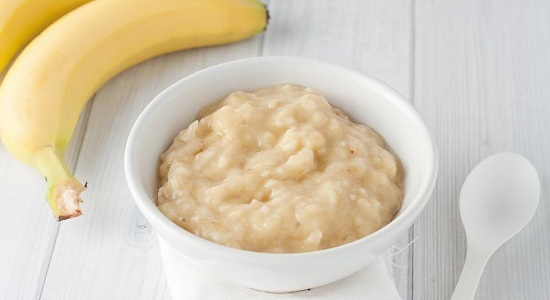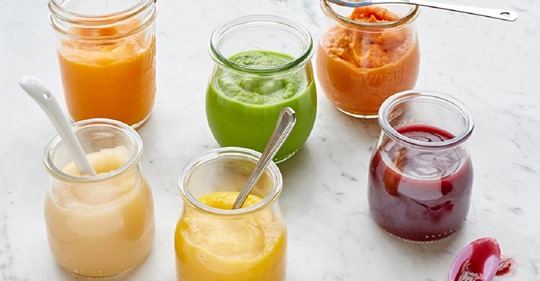
6 Healthy Baby Food Options
How you feed your baby when they are younger can impact their health (and perhaps intelligence) for the rest of their lives. Though many store-bought baby foods contain many of the essential elements of a child’s diet, there is no point in unnecessarily exposing him/her to chemicals when there are plenty of natural and inexpensive baby food options out there.
Babies require a healthy, wholesome diet, rich in essential nutrients for their growing bodies. The following foods are nutrient rich and are highly recommended by child nutritionists and pediatricians.
1. Lentils (Daal) and Dried Beans
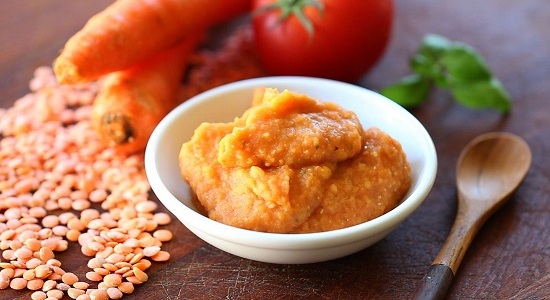
Lentils and beans are rich in protein, vitamins like folate and vitamin C and minerals like potassium, magnesium, iron, calcium and phosphorus. Their high fiber content makes them excellent in maintaining healthy digestion in infants.
The recommended age to introduce lentils into a baby’s diet is 8 -10 months, as younger children may not be able to adequately digest them—leading to gassiness.
Lentil baby food is also incredibly simple to prepare—all you really need to do is cook them to obtain the right texture. Lentils can also be mixed with a variety of other baby foods to make an even healthier paste.
2. Sweet Potatoes
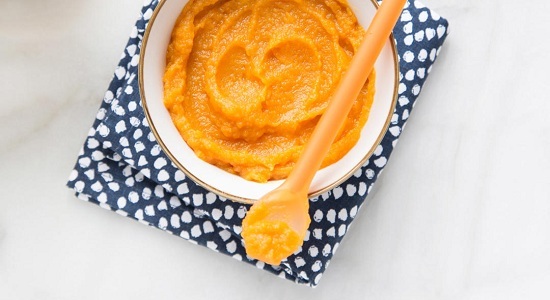
Sweet potatoes are a very common food for babies. Babies tend to find them sweet and delicious, and they are packed with carbohydrates (which provide the child with much-needed energy) and vitamin C. They also contain lesser amounts of potassium, zinc, sodium, phosphorus, calcium and vitamin A and B-complex. Sweet potatoes are more nutritious and make for better baby food than regular potatoes.
A baby can consume sweet potatoes at 6 months of age—that is, as soon as they can begin eating solid foods.
Once again, preparation requires very little effort. All you really need to do is peel and mash up the cooked sweet potatoes.
3. Yogurt
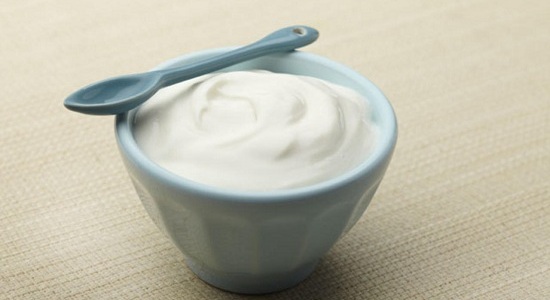
Yogurt provides a variety of health benefits for the growing child. It eases digestion, resolves gastric troubles, strengthens the immune system and can be used to help treat insomnia, diarrhea, dysentery and urinary tract infections. These benefits can be attributed mostly to the probiotics in yogurt. Yogurt is also an excellent source of protein, calcium and vitamin D—all of which are needed for bone development. Mixing yogurt with pureed fruits can improve the taste and add some extra nutrients.
4. Bananas
Bananas have mucosal properties which help coat and protect the stomach and aid digestion. They are high energy foods, rich in nutrients such as potassium, magnesium, vitamins A and C and folate.
Babies can eat raw mashed bananas from just six months of age.
It is recommended that sweet fruits and vegetables should be the first foods introduced to a baby, rather than rice or organic cereals.
5. Other Soft Fruits
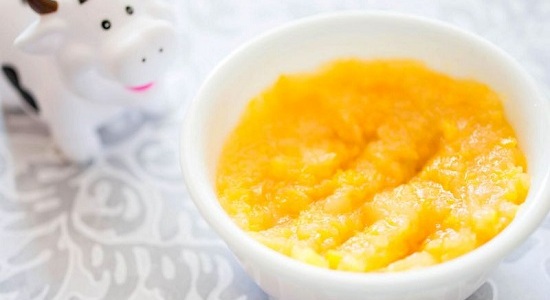
After about 8 months of age, a baby can begin to consume many kinds of soft fruits. Most such fruits are rich in antioxidants and other nutrients that can benefit the baby’s brain, eyes and even urinary tract. One rule of thumb is that any fruit starting with the letter ‘p’ makes for good baby food—peaches, prunes, pears, plums, papaya etc. Blueberries, mangoes and apricots are also recommended.
6. Avocados
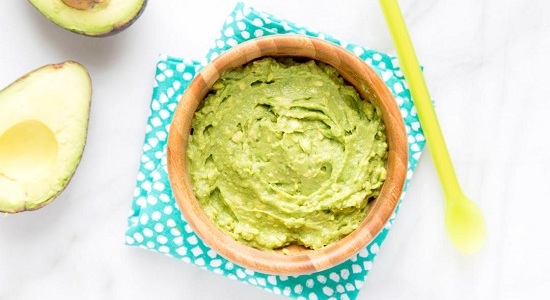
Avocados area a superfood and their soft, creamy texture make them ideal for baby consumption! They are rich in healthy, unsaturated fats (containing 3.5g per serving on average) which are needed for the development of nerve cells in the baby’s brain. Avocados are sodium and cholesterol free and contain several important nutrients including fiber, potassium, vitamin E, folate, phosphorus, vitamin B and iron.
Note: Bear in mind that it is best to discuss any diet plan you may have for your child with a nutritionist or doctor. They can help you ensure that the child is receiving all the nutrients it needs and in the right amounts and that nothing in the diet could be potentially harmful.

